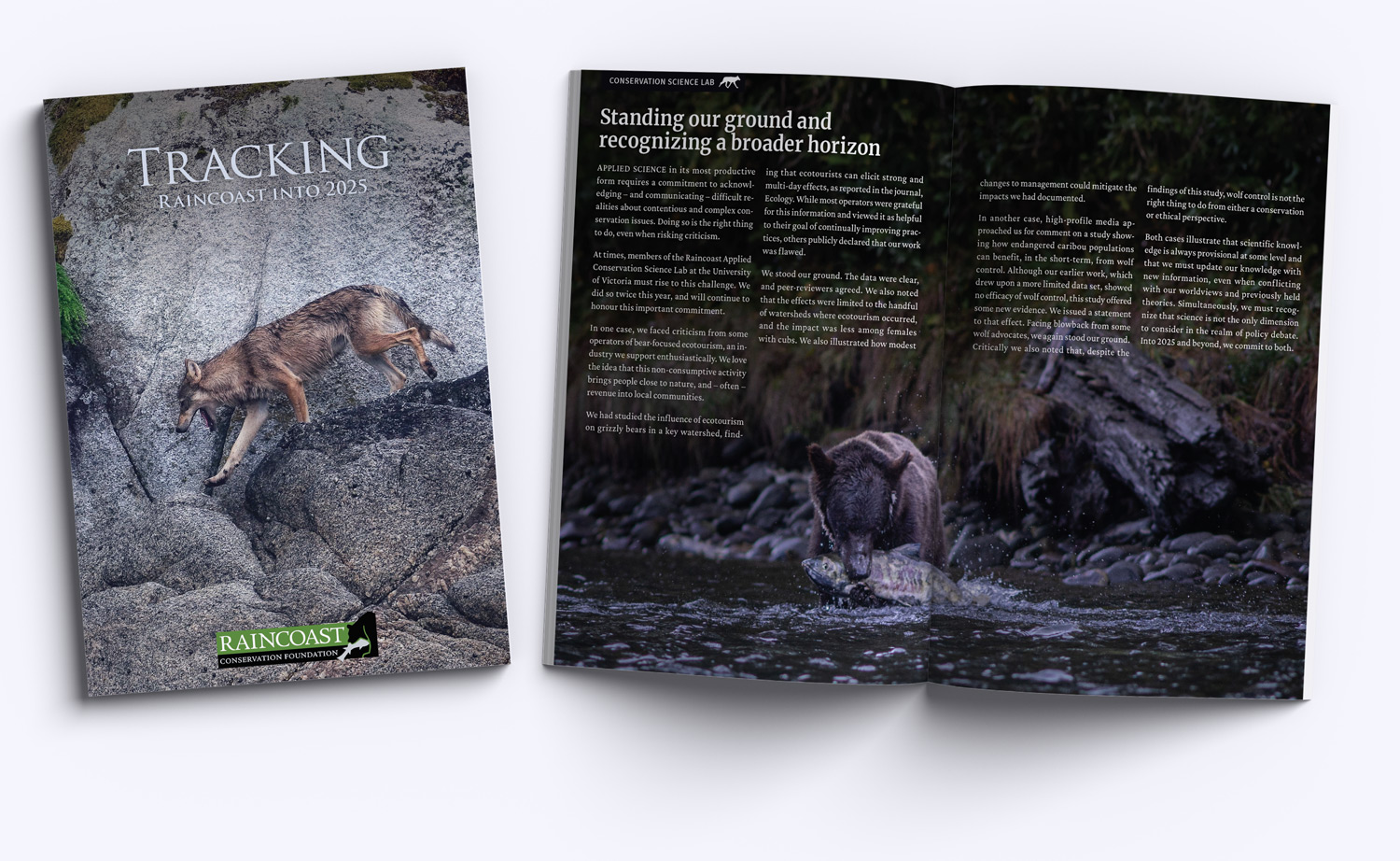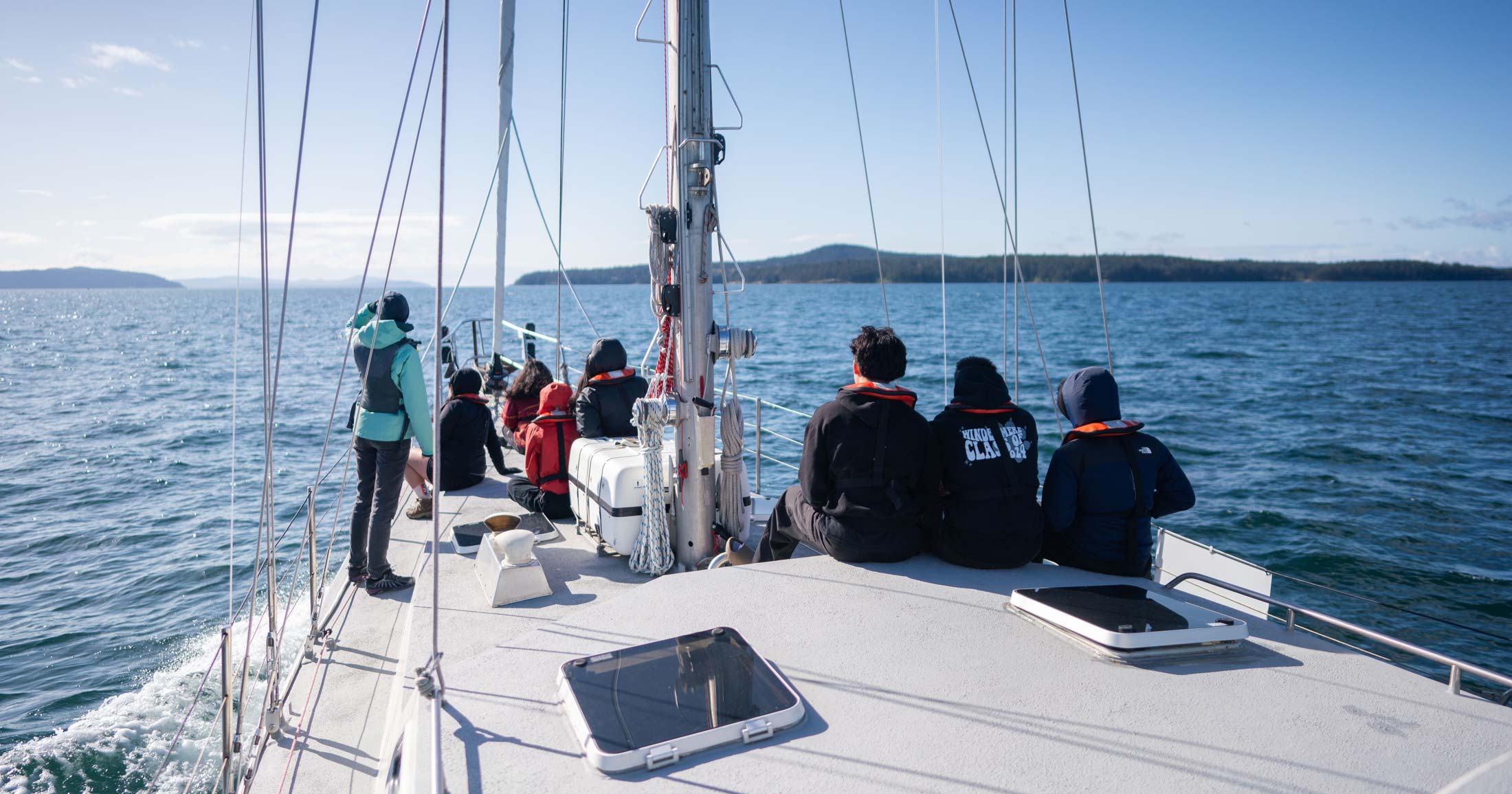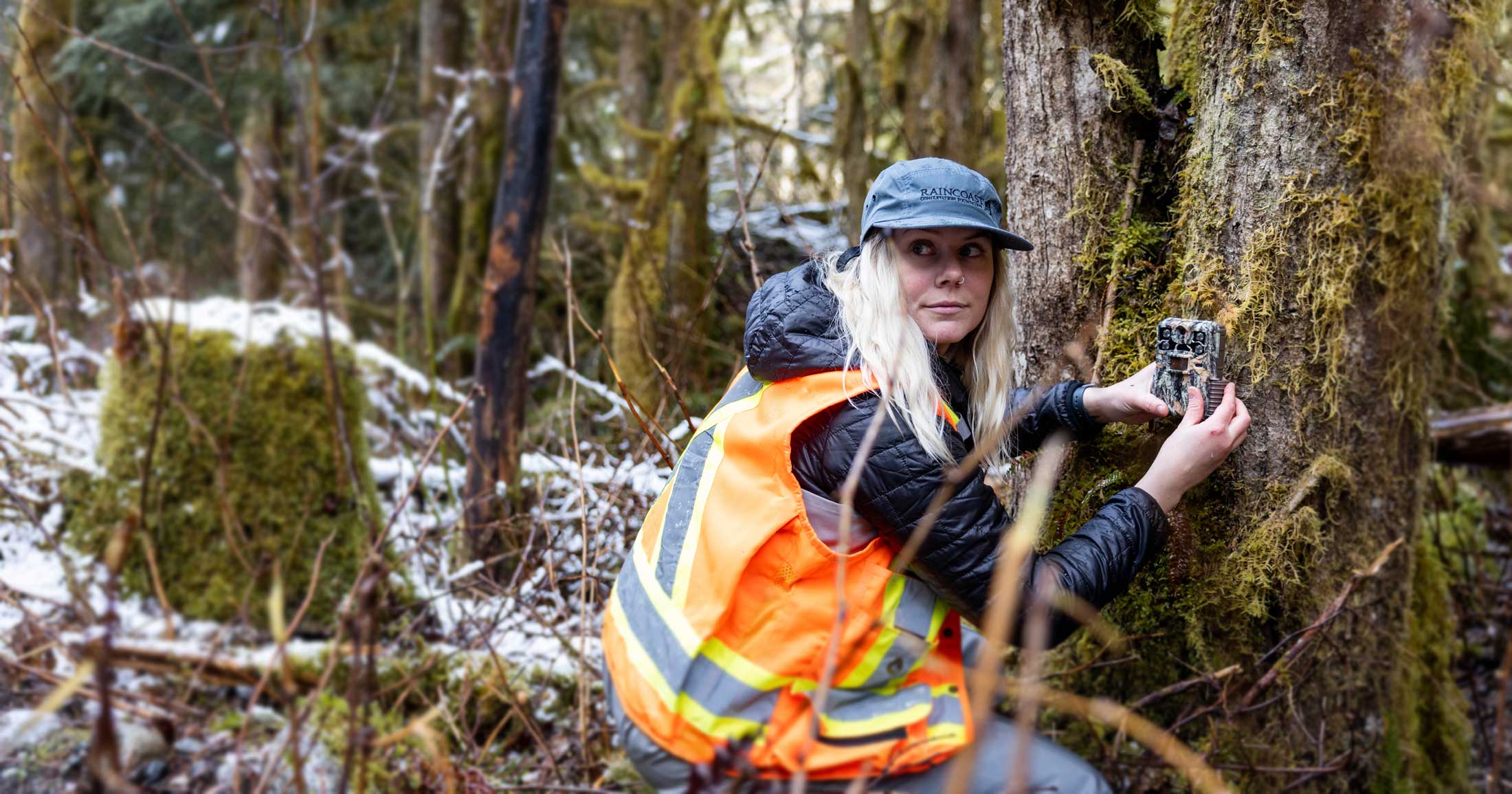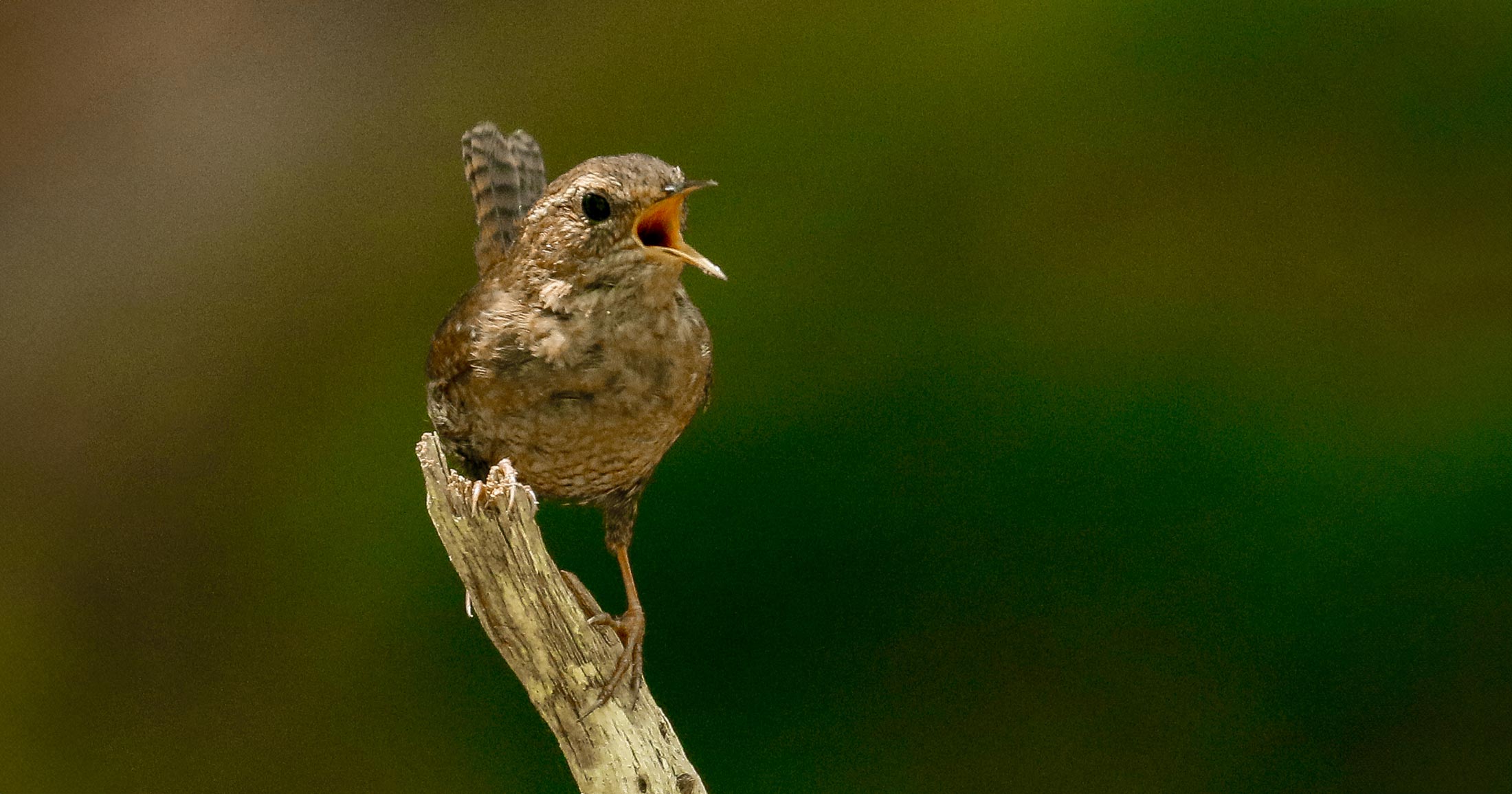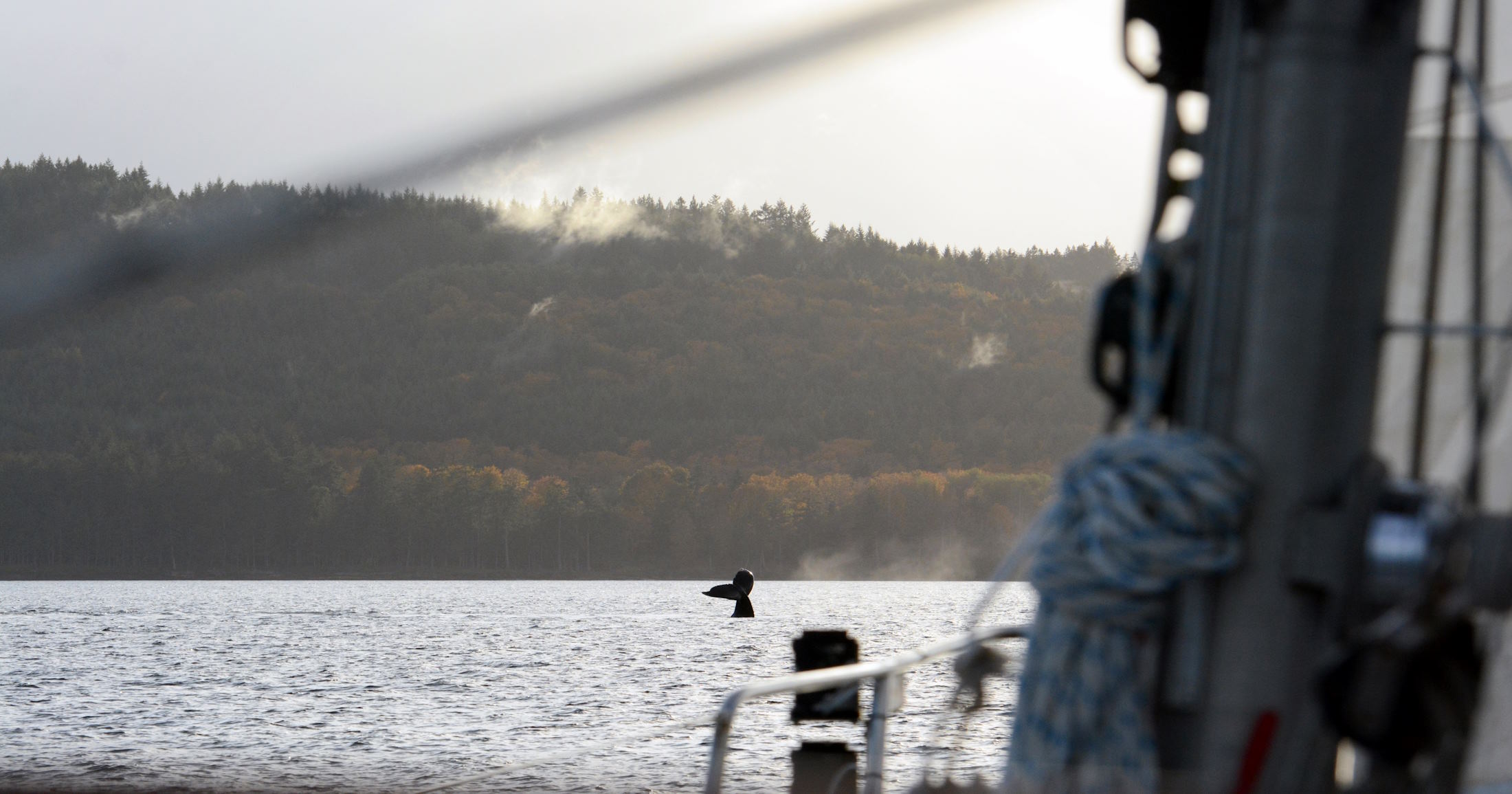Pelagic bird surveys and other research on board Achiever
Raincoast looks back at a year on board the Achiever and forward to goals for its future.
In 2024, Achiever and crew completed the final year of a multi-year at-sea pelagic bird survey for Environment and Climate Change Canada, culminating in a yearly average of over 15,000 nautical miles traveled while on survey around Vancouver Island.
Achiever also continued to support Raincoast scientists and educators in projects ranging from coastal cetacean and wolf research, to youth education, traveling across a vast section of coastal waters throughout BC.
Looking ahead to 2025, Achiever will continue to support pelagic bird research, help to develop a new research project within our cetacean team, work with coastal First Nations youth, while also helping to maintain and manage our guide outfitter tenures.
Marine operations will also continue with the planning and development process for shifting Achiever into a hybrid electric ship – working with local technicians and experts – the goal being to reduce Achiever’s carbon emissions, significantly reduce the amount of underwater noise (from our engines), and become a leading example for other small ships working and traveling the coastal waters of BC.
You can help
Raincoast’s in-house scientists, collaborating graduate students, postdoctoral fellows, and professors make us unique among conservation groups. We work with First Nations, academic institutions, government, and other NGOs to build support and inform decisions that protect aquatic and terrestrial ecosystems, and the wildlife that depend on them. We conduct ethically applied, process-oriented, and hypothesis-driven research that has immediate and relevant utility for conservation deliberations and the collective body of scientific knowledge.
We investigate to understand coastal species and processes. We inform by bringing science to decision-makers and communities. We inspire action to protect wildlife and wildlife habitats.



